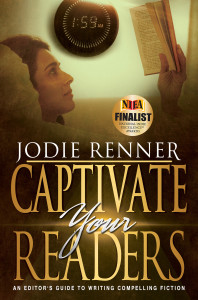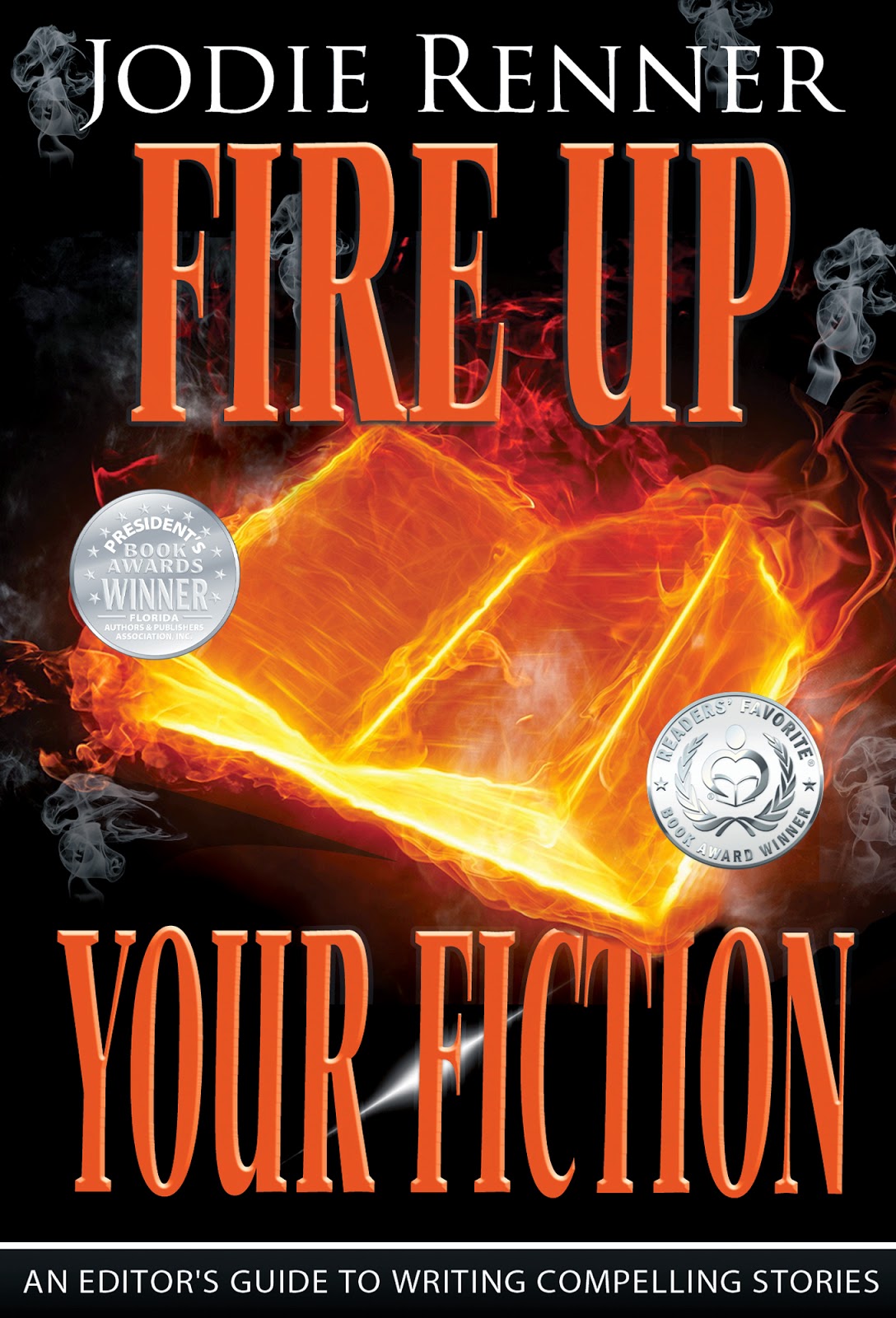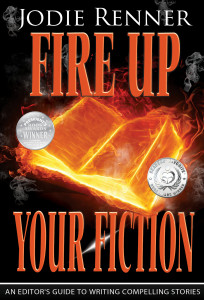15 Tips for Clear, Concise, Powerful Writing
by Jodie Renner, editor & author @JodieRennerEd
Today’s tips, a last-minute fill-in here, come from the handout for a talk I gave to a local writing group whose members were very divergent in their writing projects. These succinct pointers apply to blog posts, magazine articles, and nonfiction writing, as well as fiction writing.
When revising your work, keep these 15 tips handy to help you clarify and strengthen your message and keep your readers engaged.
1. Write in a clear, casual, friendly accessible style. Avoid formal or stiff writing. Pretend you are talking to people you know and like. Let your personality and warmth show through.
2. Grab the reader’s attention at the beginning with a compelling statement, question, scene, or example.
3. Avoid formal sentences and pretentious language. Rather than impressing your readers, ornate, fancy words can just end up alienating them. Don’t send your readers away from your story to look up a word. Fancy, erudite, or pompous words are show-offy and frustrating. Besides, immediately recognizable words make for instant comprehension and keep the pace going and the reader turning the pages. But look for the strongest, most evocative word for the situation.
4. Don’t confuse, annoy, or bore your readers with unclear or vague writing. Avoid generalities and vague terms like “things,” “food,” “people” and “animals.” Use specific examples and sensory imagery to paint a clear picture and bring your ideas to life.
5. Vary your sentence structure and the lengths of your sentences. Avoid starting several sentences in a row with He or She or the person’s name. Break up long, convoluted sentences.
6. Write lean. Make every word count. Take out all unnecessary and repetitive words and sentences and go for an easy flow of ideas. Avoid repeating ideas and watch for those little words that just clutter up your sentences. Take out “It was,” “There was,” and “that” wherever they’re not needed.
7. Take out wishy-washy qualifiers like quite, sort of, almost, kind of, a bit, pretty, somewhat, rather, usually, basically, generally, probably, mostly, really, etc. Forget “He was quite brave,” or “She was pretty intelligent” or “It was almost scary.” These qualifiers dilute your message, reduce the impact, and make the imagery weaker. Take them out. Even very is to be avoided – it’s like you’re saying the word after it needs reinforcing. “She was beautiful” packs more punch than “She was very beautiful.”
8. Keep adverbs to a minimum. Instead of propping up a boring, anemic verb with an adverb, look for strong, descriptive, powerful verbs. Instead of “He walked slowly” go for “He plodded” or “He trudged” or “He dawdled.” Instead of “She ate hungrily” say “She devoured the bag of chips,” or “She wolfed down the pizza.” Instead of “They talked quickly,” say “They babbled.”
9. Avoid colorless, overused verbs like walked, ran, went, saw, talked, ate, did, got, put, took. Get out your thesaurus (or use the MS Word one. Hint: look up the present tense: walk, run, eat, say, etc.) to find more expressive, powerful verbs instead, like crept, loped, stumbled, stomped, glimpsed, noticed, observed, witnessed, spied, grunted, whimpered, devoured, consumed, gobbled, wolfed, munched, or bolted.
10. Avoid –ing verbs wherever possible. Use -ed verbs instead – they’re stronger and more immediate. “He was racing” is weaker than “He raced.” “They searched the house” is more immediate than “They were searching the house.” Rewrite -ing verbs whenever you can, and you’ll strengthen your writing and increase its power. But keep -ing verbs for ongoing action that was going on while something else occurred: The phone rang while he was washing his car.
11. Use adjectives sparingly and consciously. Instead of stringing a bunch of adjectives in front of an ordinary, overused noun, find a more precise, expressive noun to show rather than tell. Overuse of adjectives can also turn your writing into “purple prose” that is melodramatic and overly “flowery.”
12. Avoid the passive voice. For greater impact, when describing an action, start with the doer, then describe what he did, rather than the other way around. Use the more direct active voice wherever possible. Instead of “The house was taped off by the police,” write “The police taped off the house.” Also, avoid empty phrases like “There is”, “There was,” “It’s,” and “It was.” Jump right in with what you’re actually talking about.
13. Avoid negative constructions wherever possible – they can be confusing to the reader. Instead of “I didn’t disagree with him,” say “I agreed with him.”
14. Read your pages out loud to make sure the ideas flow naturally. Wherever you stumble or have to reread, your readers will, too.
15. Pay attention to white space. A solid wall of words for a whole page can make readers anxious, especially reluctant readers. Use frequent paragraphing. For nonfiction and blog posts, use bolded subheadings and lists wherever appropriate.
Do you have any other good tips to keep in mind for the revision stage, especially for blog posts and magazine articles? If so, please share them in the comments below. Thanks!
 Jodie Renner is a freelance editor and the award-winning author of three craft-of-writing guides in her series An Editor’s Guide to Writing Compelling Fiction: Fire up Your Fiction, Writing a Killer Thriller, and Captivate Your Readers. She has also published two clickable time-saving e-resources, Quick Clicks: Spelling List and Quick Clicks: Word Usage. You can find Jodie at www.JodieRenner.com, www.JodieRennerEditing.com, and on Facebook and Twitter.
Jodie Renner is a freelance editor and the award-winning author of three craft-of-writing guides in her series An Editor’s Guide to Writing Compelling Fiction: Fire up Your Fiction, Writing a Killer Thriller, and Captivate Your Readers. She has also published two clickable time-saving e-resources, Quick Clicks: Spelling List and Quick Clicks: Word Usage. You can find Jodie at www.JodieRenner.com, www.JodieRennerEditing.com, and on Facebook and Twitter.


